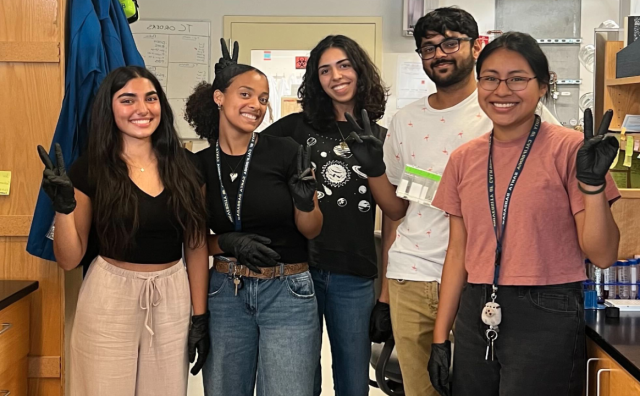Mentor
Soham Chowdhury - Molecular, Cellular, and Developmental Biology
Advisor
Dr. Brooke Gardner - Molecular, Cellular, and Developmental Biology
Cracked, but Not Broken: Can a mutant PEX1 protein still support peroxisome function?
Interns
Leah Jackson - Microbiology
Nika Motaghedi - Chemical Engineering
Amanda Patel - Cell & Developmental Biology
Jocelyn Sanchez - Biological Sciences

Project Description
In our cells there are small compartments called peroxisomes that act like factories to produce useful molecules and degrade excess wastes. Peroxisomes need a protein called PEX1 to help move materials into the peroxisome. Sometimes, a mutation happens in the PEX1 protein that alters its shape. The PEX1 mutation is often seen in newborns with a fatal disorder called Zellweger’s Syndrome caused by a lack of functional peroxisomes. This disease causes brain development issues in newborns meaning they cannot live past a few years. However, it’s unknown how the mutation affects PEX1’s ability to work properly, and by extension, how it contributes to Zellweger’s Syndrome. Our experiment attempts to discover if mutated PEX1 protein supports normal peroxisome function by measuring the amounts of protein it helps import. We will do this by targeting a specific species of protein, SCP2. It is one of many molecules that needs to be brought into the peroxisome, but it stands out because it gets halved in size once it’s successfully imported, meaning that we can easily measure how much SCP-2 is imported using lab techniques such as SDS-PAGE and western blot. We found that when over expressed, mutated PEX1 does show signs of function and is not fully dysfunctional, leaving room for further study on what biological processes contribute to Zellweger’s Syndrome.
Project Files
